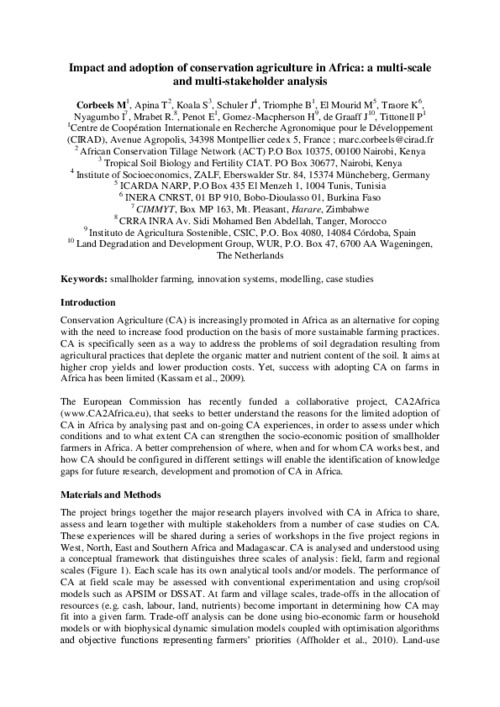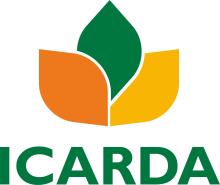Resource information
Conservation Agriculture (CA) is increasingly promoted in Africa as an alternative for coping with the need to increase food production on the basis of more sustainable farming practices. CA is specifically seen as a way to address the problems of soil degradation resulting from agricultural practices that deplete the organic matter and nutrient content of the soil. It aims at higher crop yields and lower production costs. Yet, success with adopting CA on farms in Africa has been limited (Kassam et al., 2009).
The European Commission has recently funded a collaborative project, CA2Africa (www.CA2Africa.eu), that seeks to better understand the reasons for the limited adoption of CA in Africa by analysing past and on-going CA experiences, in order to assess under which conditions and to what extent CA can strengthen the socio-economic position of smallholder farmers in Africa. A better comprehension of where, when and for whom CA works best, and how CA should be configured in different settings will enable the identification of knowledge gaps for future research, development and promotion of CA in Africa.


